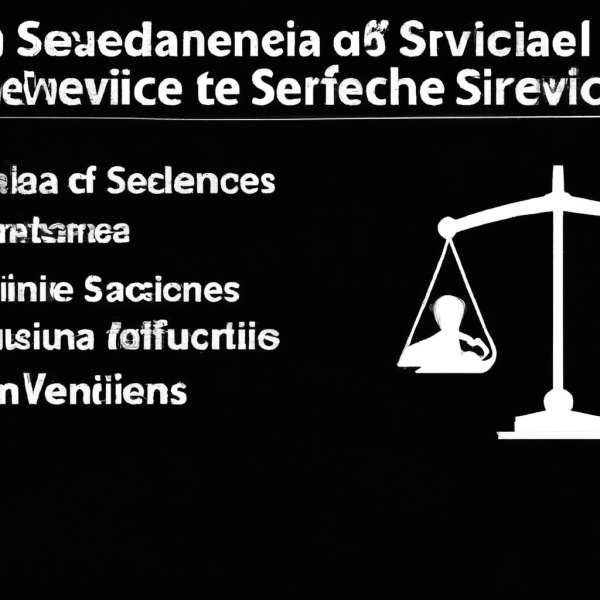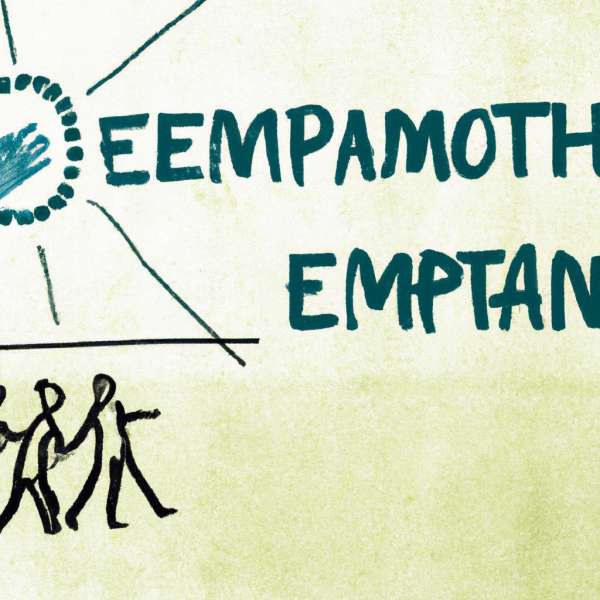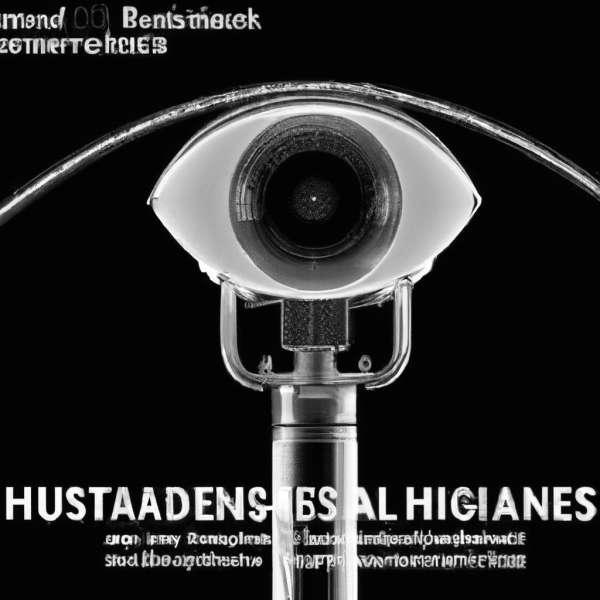In the digital age, where technology intertwines seamlessly with daily life, the concept of privacy is undergoing a profound transformation. Surveillance, once the domain of governments and law enforcement, has become a shared reality, woven into the fabric of our interconnected world. From the ubiquitous presence of smartphones to the omnipresent eye of social media, our every action is increasingly monitored, recorded, and analyzed. This pervasive scrutiny raises critical questions about the nature of human rights in a society where the balance between safety and personal freedom hangs precariously. As we navigate this new terrain, it becomes imperative to examine how surveillance impacts our fundamental rights—rights that are meant to protect the individual from the state and foster dignity, autonomy, and justice. This article delves into the intricate interplay between human rights and surveillance, exploring the challenges and responsibilities that arise in an age where the line between security and freedom is continually blurred.
The Ethics of Surveillance: Balancing Security and Individual Freedoms
The proliferation of surveillance technologies has sparked a complex ethical debate surrounding the delicate interplay between security and individual freedoms. Governments and corporations justify the expansion of surveillance practices with promises of enhanced security, yet this can often come at the expense of personal privacy and civil liberties. The challenge lies in striking a balance that satisfies the need for safety while safeguarding fundamental human rights.
Consider the following implications of increased surveillance:
- Privacy Erosion: Constant monitoring can lead to a culture of distrust, where individuals feel they are always being watched.
- Chilling Effect on Free Speech: Citizens may become less likely to express dissenting opinions when they know their communications are being scrutinized.
- Disproportionate Impact: Certain communities often face heightened surveillance, exacerbating existing inequalities and stigmas.
- Data Misuse: The data collected can be misused or accessed by unauthorized entities, posing risks to personal safety and autonomy.
To assess the landscape of modern surveillance, it may be beneficial to consider the following framework:
| Surveillance Measure | Security Benefits | Potential Risks |
|---|---|---|
| Facial Recognition | Identification of suspects in real-time | False positives, privacy invasion |
| Mass Data Collection | Enhanced crime prediction algorithms | Abuse of power, loss of agency |
| Location Tracking | Rapid response to emergencies | Constant oversight, behavioral manipulation |
In navigating these important considerations, societies must engage in ongoing dialogue about **transparency**, **accountability**, and the need for robust safeguards. Establishing ethical frameworks will ensure that security measures contribute positively to society without undermining the very freedoms they aim to protect. Balancing the scales, therefore, requires a cooperative effort among citizens, policymakers, and technology developers to uphold human rights in an increasingly surveilled world.

Impact of Technology on Privacy Rights: Facing the Digital Dilemma
The rapid evolution of technology has ushered in an era where surveillance capabilities far exceed any previously imagined thresholds. With the proliferation of connected devices, big data analytics, and artificial intelligence, our personal information is collected, analyzed, and often exploited in ways that challenge the foundations of privacy rights. The digital realm, designed to empower and connect individuals worldwide, paradoxically serves as a double-edged sword, famously blurring the lines between security and individual freedoms.
In this hyper-connected environment, several factors contribute to the erosion of privacy rights:
- Data Collection: Organizations now have the means to gather vast amounts of data. From social media interactions to smart home devices, users unknowingly surrender information that could be used for tracking and profiling.
- Government Surveillance: National security agencies increasingly monitor digital communications, often justified by the need to combat terrorism and maintain public safety, raising questions about the balance of power.
- Corporate Influence: Companies leverage personal data to tailor advertising strategies, potentially compromising consumer autonomy and leading to the manipulation of behavior.
- Evolving Legal Framework: Existing laws struggle to keep pace with the rapid technological advancements, often leaving gaps in protections that allow for the misuse of private information.
To illustrate the alarming trends and implications for privacy rights, consider the following table that outlines key areas of concern:
| Concern | Impact on Privacy Rights |
|---|---|
| Mass Surveillance | Increased monitoring of citizens’ activities, leading to a chilling effect on free expression. |
| Data Breaches | Personal data theft undermines trust and can lead to identity theft. |
| Invasive Marketing | Loss of control over personal information used for targeted manipulation. |
| Algorithmic Bias | Discriminatory practices based on flawed data interpretation can marginalize groups. |
The implications of these technological advancements are profound, forcing society to reevaluate the very concepts of rights and freedoms in the digital age. As we navigate this complex landscape, fostering dialogue around technology ethics and reinforcing safeguard measures can empower individuals to reclaim their privacy rights amidst the sweeping tide of surveillance.

Empowering Citizens: Tools and Strategies for Protecting Human Rights
In an era dominated by technological advancements, citizens are equipped with a myriad of tools to actively participate in safeguarding their fundamental rights. Through the strategic use of technology, individuals can harness their collective power and promote accountability in those who govern. Today, platforms for advocacy and awareness are more accessible than ever, enabling people to amplify their voices against violations of human rights.
To effectively champion these rights, citizens can leverage a variety of resources:
- Social Media Platforms: Utilizing channels like Twitter and Facebook to spread awareness, share stories, and organize grassroots movements.
- Encryption Tools: Protecting personal communications and sensitive information using apps like Signal or WhatsApp to evade surveillance.
- Documenting Violations: Creating digital archives with platforms like Witness or a dedicated blog to store and share evidence of human rights abuses.
- Participatory Mapping: Engaging in initiatives like Ushahidi, which allow communities to report incidents in real time, transforming data into powerful advocacy tools.
Collaboration is key in this fight for justice. Citizens can participate in local and international coalitions that focus on human rights education and activism. By joining forces with NGOs, civil society organizations, and community groups, individuals can gain valuable insights and training on effective advocacy strategies. Consider the following initiatives:
| Initiative | Focus Area | Methods |
|---|---|---|
| Local Rights Workshops | Community Education | Trainings, Discussions |
| Online Webinars | Global Awareness | Panel Discussions, Q&A |
| Advocacy Campaigns | Policy Change | Petitions, Lobbying |
By adopting these methods and utilizing available tools, citizens not only protect their rights but also contribute to a broader movement striving for justice and transparency. In this interconnected world, taking charge of human rights advocacy empowers individuals, cultivates resilience, and fosters a society that values dignity for all.

Policy Recommendations for Governing Surveillance Practices: A Path Forward
As surveillance technologies rapidly evolve, so too must the frameworks that govern their use. Effective governance should prioritize the protection of human rights while ensuring that the benefits of technology do not come at the cost of individual freedoms. Below are key recommendations that can pave the way for ethical surveillance practices:
- Establish Clear Legal Frameworks: Legislation must clearly define the scope, purpose, and limits of surveillance activities, providing transparency to both the practitioners and the public.
- Implement Independent Oversight: Independent bodies should be established to oversee surveillance practices, ensuring accountability and compliance with human rights standards.
- Enhance Public Awareness: Initiatives to educate the public about their rights regarding surveillance can empower individuals to advocate for their privacy and autonomy.
- Encourage Ethical Technology Development: Collaboration between technologists, policymakers, and human rights advocates is essential to create solutions that prioritize ethical considerations in design and deployment.
One effective approach to governance is the development of a comprehensive impact assessment framework to evaluate the implications of surveillance initiatives before implementation. This framework should include:
| Assessment Area | Description |
|---|---|
| Human Rights Impact | Evaluate potential risks to privacy, freedom of expression, and other civil liberties. |
| Data Security Measures | Analyze the safeguards in place to protect collected data from unauthorized access or misuse. |
| Public Benefit Analysis | Assess whether the intended benefits outweigh the potential harms to individuals and communities. |
Lastly, fostering international cooperation is paramount. Nations should collaborate to create binding agreements that promote best practices in surveillance governance, ensuring a global commitment to uphold human rights standards.
Concluding Remarks
As we navigate this intricate landscape where human rights and surveillance intersect, it becomes increasingly clear that the balance between security and freedom demands our utmost attention. In an age where our digital footprints are meticulously tracked and analyzed, it is vital to reflect on the implications of such oversight for our inherent rights to privacy, expression, and dignity.
The challenge lies not only in the actions of governments and corporations but also in our own responses as individuals and communities. By fostering awareness, encouraging dialogue, and advocating for robust legal frameworks, we can work together to forge a path toward a future where technological advancements do not come at the expense of our fundamental rights.
Ultimately, the discourse surrounding surveillance and human rights is not merely an academic exercise; it is a call to action. As we continue to interrogate the growing complexity of our digital lives, let us champion a vision that respects and upholds the rights of every individual—reminding us all that in the shadows of surveillance, the light of human dignity must never fade.


